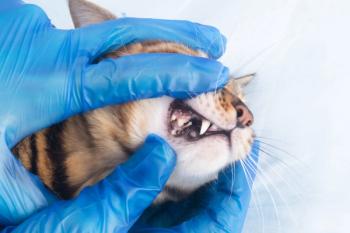
AVMA remains opposed to mandatory sterilization
As more governments look to enforce mandatory sterilization, the AVMA is standing firm in its opposition to the programs.
SCHAUMBURG, ILL. — As more governments look to enforce mandatory sterilization to control pet overpopulation, the AVMA is standing firm in its opposition to the programs.
The American Veterinary Medical Association's (AVMA) Animal Welfare Committee determined the potential harm from the proposed laws outweigh potential benefits.
Both Florida and Texas introduced legislation this year that would require all puppies and kittens over a certain age to be sterilized. Chicago has been debating a similar law since last year.
While some governmental entities have enacted sterilization laws, such as Los Angeles County in California and Albuquerque, N.M., the issue remains contentious.
The program was ended in Fort Worth, Texas, after a reduction in vaccinations against rabies led to an increase in reported rabies cases in that city.
In addition, the American Kennel Club (AKC) is opposed to mandatory sterilization, stating it creates a hardship for responsible breeders.
Although the AVMA has concluded that dog and cat population control is a primary welfare concern, the association will not support regulations or legislation mandating spay/neuter of privately owned, non-shelter dogs and cats. "Although spaying and neutering helps control dog and cat populations, mandatory approaches may contribute to pet owners avoiding licensing, rabies vaccination and veterinary care for their pets and may have other unintended consequences," according to the most recent language adopted by the AVMA.
Instead, the AVMA recommends that state and local governments develop effective dog and cat population-control programs.
The AVMA Animal Welfare Committee last examined this policy in 2004 and revised it as part of the normal five-year review, and due to numerous requests from cities and states for input.
"Prevention of unexpected litters; reduced incidences of some cancers and reproductive diseases; and prevention and amelioration of certain undesirable behaviors have been documented as benefits to spaying/neutering dogs and cats," according to the Animal Welfare Committee. "However, potential health problems associated with spaying and neutering have also been identified."
The group also notes that there are conflicting reports regarding euthanasia rates and animal-control costs achieved in communities that have enacted mandatory spay/neuter.
"Although the New Hampshire program has demonstrated some success, that program is voluntary and not mandatory," the committee states. "In other communities where mandatory spay/neuter has been adopted, animal-control costs and euthanasia rates have both increased."
The executive board tackled several other policy issues during its April meeting, including revising its position on the declawing of domestic cats.
The AVMA is taking a stronger position, stating the procedure should be considered only after attempts have been made to prevent the cat from using its claws destructively or when its clawing presents a zoonotic risk for the owner.
The AVMA Animal Welfare Committee recommended several amendments to the policy, last updated in 2003, to the executive board, which approved them.
Acknowledging that there is an ongoing debate within the veterinary profession regarding declawing, the animal-welfare committee noted that "members continue to believe that declawing can be justified when it becomes an alternative to euthanasia, or is necessary to protect the health of the cat's owner(s), and will result in acceptable quality of life in an otherwise suitable home."
The new policy puts additional emphasis on the need for pain control and quality aftercare, with a recommendation that written guidance be given to the owner to avoid miscommunication, facilitate recovery and assure the well-being of the cat after surgery.
The new policy, which has the backing of the American Association of Feline Practitioners (AAFP), also includes additional language on synthetic nail caps.
Other revisions the board made included its position on compounding, Internet pharmacies, AAFP and AAHA basic guidelines of judicious therapeutic use of antimicrobials and veterinary dentistry, among others.
The revision to the Internet pharmacy policy, for example, now acknowledges the newer, animal-oriented accreditation program of the National Association of Boards of Pharmacy (NABP) Vet-VIPPS program that accredits facilities that dispense prescription drugs and devices for companion and non-food-producing animals over the Internet. The updated policy also includes language about obtaining drugs from a foreign country through an Internet source.
The veterinary dentistry policy was amended to permit veterinary health-care workers to perform certain dental procedures "as directed under the supervision of a licensed veterinarian in accordance with state regulations."
The board voted to reaffirm its position on tail docking of cattle and the practice of soring and decided to rescind its policies on veterinary supervision of animal drug use and medical care for pets of indigent people, among others.
The former was rescinded because they are redundant and covered in more detail in other AVMA policies, including those species-specific policies addressing judicious antimicrobial use.
For a complete review of the policy changes, visit
Newsletter
From exam room tips to practice management insights, get trusted veterinary news delivered straight to your inbox—subscribe to dvm360.






